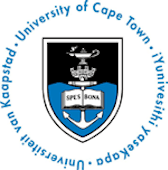I obtained my PhD in Marine Biology in 2007 at the West Coast Research and Technology Center (FTZ) at the University of Kiel, Germany. For my thesis “Identification and characterisation of foraging areas of seabirds in upwelling systems: biological and hydrographic implications for foraging at sea” I studied the foraging behaviour of several seabird species in the Humboldt and Benguela Currents. In Chile, studies were carried out in cooperation with Prof. Guillermo Luna Jorquera at the Universidad Católica del Norte in Coquimbo. In Namibia, I worked with Dr Jessica Kemper and Dr Jean-Paul Roux at the Ministry of Fisheries and Marine Resources in Lüderitz. Since obtaining my PhD, I have continued my work on the foraging behaviour of seabirds in Namibia as a postdoctoral research fellow at the Animal Demography Unit at UCT (supervisor: Prof. Les Underhill) funded through a Claude Leon Foundation fellowship. My current work focuses on the foraging behavior and diet of African penguins, Cape gannets and bank cormorants. The work forms part of the monitoring programme for Namibia’s first Marine Protected Area, the Namibian Islands’ Marine Protected Area (NIMPA). NIMPA was declared in 2009 and its outline is partly based on data obtained during my PhD on the foraging areas of African penguins. My work in Namibia is carried out in collaboration with the Ministry of Fisheries and Marine Resources in Lüderitz (main collaborators: Dr. Jean-Paul Roux, Ecosystem Analysis, and Paulus Ashili, Seabird Section) as well as with Dr. Jessica Kemper from the African Penguin Conservation Project. Besides the studies of foraging behaviours of breeding birds which are mostly carried out using GPS data loggers, we are currently also investigating the winter movements of Cape gannets breeding at Mercury and Ichaboe Islands using global location sensors (GLS, geolocation). We deployed birds with GLS at the end of the breeding season 2011/2012 and are currently retrieving the devices. Another set of devices will be deployed during this breeding season. Using time of sunrise and sunset as well as day length will give us an idea about where the birds spend their time during the non-breeding season. This information will help to improve the conservation measures for Cape gannets as currently little is known about the threats faced by the birds during the non-breeding season. This project is carried out in collaboration with Lorien Pichegru and Peter Ryan from the Percy FitzPatrick Institute at UCT, Pierre Pistoriua and Maelle Connan from the Nelson Mandela Metropolitan University in Port Elizabeth and supported by David Grémillet from CNRS; France. In addition to my work in Namibia, I am currently working on a model that tries to explain and predict the population decline of African penguins breeding at Dyer Island. The project “Dyer Island Penguin Pressure Model” is funded by the SA Research Chair in Marine Ecology and Fisheries awarded to Prof. Astrid Jarre, based at the Marine Research Institute at UCT. My work forms part of a working group, consisting of scientists from UCT, government organisations (DEA) as well as conservation bodies (CapeNature, SANBI) and NGOs. Penguin numbers have dramatically declined at Dyer Island over the last decades, presumably due to a combination of natural and human-induced factors. We are currently evaluating the effects of fishing activities, disturbance, oiling, predation by seals and gulls, as well as climatic effects on breeding birds and reduced food availability due to shifts in prey abundance. The model aims for a better understanding of interacting processes and will be used as a tool in advising fisheries working groups applying the Ecosystem Approach to Fisheries. The model allows us to predict trends in African penguin population numbers under different climate change scenarios as well as other environmental changes. Between 2009 and 2011, I have also been involved in an Overseas Territories Environment Programme (OTEP) funded project on the foraging ecology of rockhopper penguins on New Island, Falkland Islands. During the 2009/2010 and 2010/2011 breeding seasons, we deployed GPS data loggers on breeding rockhopper penguins during incubation, guard and crèche stages. This work was carried out in collaboration with the Max Planck Institute of Ornithology in Radolfzell, Germany (working group: Dr. Petra Quillfeldt) and the New Island Conservation Trust
Experience
-
–presentHonorary Research Associate and Research Manager at SANCCOB, University of Cape Town
- Cape Town, South Africa
- Website
- Article Feed
- Joined


